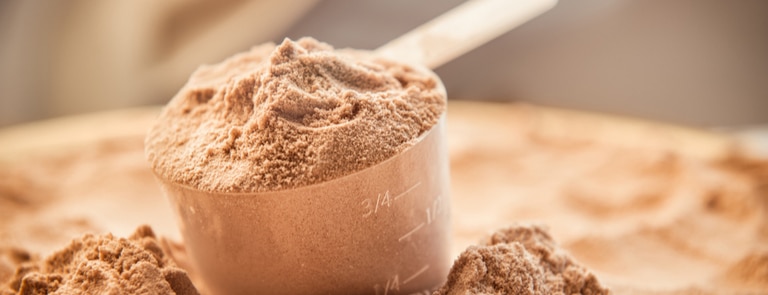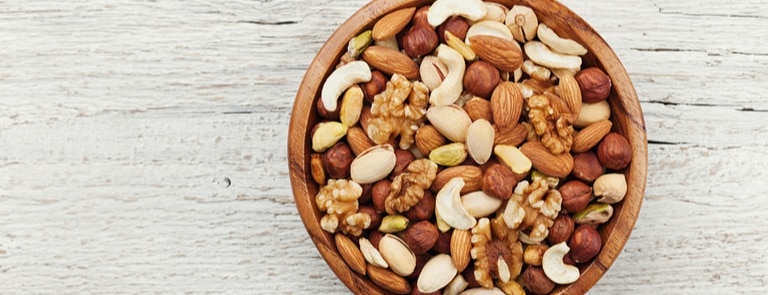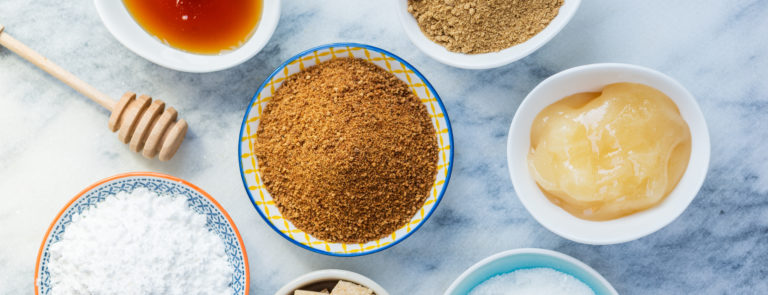10% off £35
Code:SAVE
The best keto protein powders

Interested in a keto diet? Find out more about this popular diet and discover some of
the best keto powders to help you get the right amount of protein each day
Summary
1What is a keto diet?
There are many various types of low-carb diets. What makes the keto diet a little different is that instead of being high in protein with moderate...
2Why do people follow a keto diet?
There’s a range of reasons why someone might choose to follow a keto diet. They include: blood glucose management, lower blood pressure, weight loss.
3Can I have protein powders on a keto diet?
You may be tempted to use protein powders to support your keto diet. As their name suggests, protein powders are powdered forms of protein that come..
The ketogenic or ‘keto’ diet is one of the most well-known diets in the world. It’s
characterised by eating a very low amount of carbohydrates, and a relatively high amount of
fats, that causes the body to break down fat into molecules called ketones.1,2
Many people have successfully followed a keto diet to help them achieve their weight loss
goals.1
Some choose to support their diet using keto protein powders. Let’s find out more.

What is a keto diet?
There are many various types of low-carb diets. What makes the keto diet a little different is that, unlike others, instead of being high in protein with a moderate amount of fat, it’s high in fat, with just a moderate amount of protein.1,2
Exactly how much of each nutrient is included in the diet varies, but typically, a keto diet
recommends that your daily calorie intake is divided into the following percentages:2
- 70–80% fat
- 10–20% protein
- 5–10% carbohydrate
Restricting your intake of carbs means that your body is forced to use your fat stores for
energy sooner than normal, which might result in effective weight loss.2
In general, many diets that gain traction including the keto diet can be restrictive and not a
sustainable way to lose weight. At H&B we believe in eating a healthy balanced diet with
plenty of plants and wholefoods, as per the EatWell recommendations, carbs are an
important part of your diet and are essential for a healthy functioning body. Here we’ll explain
the keto diet in more detail, but we recommend speaking to a health professional before you
restrict certain foods from your diet.
Why do people follow a keto diet?
There’s a range of reasons why someone might choose to follow a keto diet. They include:
Since carbohydrates play a big role in raising blood glucose levels, following a keto diet may
help to keep your blood sugar levels under control. This may be beneficial if you have type 2 diabetes.4
Research has shown that following a ketogenic diet may reduce blood pressure in people
who are overweight or have type 2 diabetes.5
Finally, as we know, many people use keto diets to support their weight loss goals if they’re
overweight or obese. Following a ketogenic diet is particularly effective for short-term weight
loss, with most research studies showing benefits over three months to two years, but not
longer.6,7
Can I have protein powders on a keto diet?
You may be tempted to use protein powders to support your keto diet. As their name
suggests, protein powders are powdered forms of protein that come from plants, such as
soybeans, peas, rice or potatoes. In some cases, they come from eggs or milk (casein or
whey protein). In theory, this makes them all ideal for boosting your natural protein
consumption.
However, before you dive in, it’s also important to note that some types of protein powders
also contain other ingredients, including sugars, artificial flavours, vitamins and minerals.
In many cases, protein powders contain carbohydrates. Those will not only give you an
abundance of extra calories, but they could also push you over the recommended
percentage of protein for the day, meaning that your body will no longer be in ketosis.2
For this reason, we recommend that you always check the ingredients list before purchasing
a protein powder if you’re following a keto diet.

Best protein powders for a keto diet
This doesn’t mean that you can’t use protein powders when following a keto diet. Let’s take
a look at the different types of protein powders that could be beneficial to use as part of your
ketogenic diet.
Whey protein is one of the most popular powdered proteins.
It’s particularly good if you’re on a keto diet, as most whey protein products contain very low
levels of carbohydrates. Whey protein is a milk protein that’s created as a by-product of
cheese production, meaning that it’s not suitable for vegans or anyone on a plant-based diet.8
You’ll probably notice two different types of whey protein – whey isolate and concentrate.
Isolate typically contains fewer carbohydrates than concentrate, which makes it a better
option for people following a keto diet.8
Visit our ultimate guide to whey protein to learn more.
Collagen is best known as a product for healthy skin, but collagen protein is also a common
choice for people looking to increase their protein intake. This is because it plays crucial
roles in other areas of the body too.9
Collagen protein powders are made from collagen that’s sourced from various animals,
which may make them unsuitable for vegetarians or anyone on a fully plant-based diet.
You’ve probably guessed that pea protein is plant-based, making it a great alternative to
meat protein sources and a viable option for anyone who is vegetarian or vegan.
It’s also naturally low in carbohydrates, which makes it a perfect choice for those following a
keto diet. Pea protein is said to have a range of potential benefits, from reducing the risk of
cardiovascular disease and diabetes, to anti-inflammatory and antioxidant properties.
However, as pea protein is very new, the research in this area is still in its infancy.10
Casein is another milk-based protein which contains many of the essential amino acids that
your body needs to function properly.11
It’s also a slow-release protein, which means that it delivers a steady supply of protein over
time. Studies show that this property is particularly beneficial for muscle recovery.11 For this
reason, it’s usually recommended that it’s taken before bed.
Importantly, casein is very low in carbohydrates, so it could support a keto diet well.12
Want to find out more? Check out our dedicated casein protein guide.
Rice protein is made from – yes, you guessed it – rice. The protein is extracted and turned
into a powder that you can add to food and drinks. It’s suitable for vegetarians and vegans,
as well as people with certain allergies (although always read the label to double check
yourself), and is packed full of vitamins and minerals.13
However, since rice is a well-known source of carbohydrates, it’s important that you check
the carb content of your protein powder before consumption if you’re following the keto diet.
Find out about the benefits of rice protein powder and more here.
Coming from soybean, soy protein is another nutrient-rich, plant-based source of protein
that’s available in powder form. It contains all nine essential amino acids and is naturally
very low in carbohydrates.14
Just be sure to check that there’s no added sugars, which could increase the total carb value
and affect your decision to take this protein when following a keto diet.
Finally, let’s talk about hemp protein, which is often overlooked but packs a powerful protein
and fibre punch. It’s plant-based and stuffed with antioxidants, vitamins and minerals which
could support your overall health.15
With low carbohydrate content, this protein powder could become a part of your regular keto
diet.
The final say
With so many protein powders to choose from, selecting the right one can feel a little
overwhelming. However, by understanding what to look for to support your keto diet and
your health goals, you can find the protein powder that suits your needs.
The advice in this article is for information only and shouldn’t replace medical care. Please
check with your GP or healthcare professional before trying any supplements, treatments or
remedies. Food supplements mustn’t be used as a substitute for a varied and balanced diet
and a healthy lifestyle.
- Masood W, et al. Ketogenic diet. Treasure Island (FL): StatPearls Publishing; 2024. Available from: http://www.ncbi.nlm.nih.gov/books/NBK499830/
- Zhu H, Bi D, Zhang Y, Kong C, Du J, Wu X, et al. Ketogenic diet for human diseases: the underlying mechanisms and potential for clinical implementations. Signal transduction and targeted therapy [Internet]. 2022 Jan 17 [cited 2024 Jul 9];7(1). Available from: https://www.nature.com/articles/s41392-021-00831-w
- Kolb H et al. Ketone bodies: From enemy to friend and guardian angel. BMC Med. 2021;19(1):313. https://doi.org/10.1186/s12916-021-02185-0
- Alarim RA, et al. Effects of the ketogenic diet on glycemic control in diabetic patients: Meta-analysis of clinical trials. Cureus. 2020;12(10):e10796. https://doi.org/10.7759/cureus.10796
- Di Raimondo D, et al. Ketogenic diet, physical activity, and hypertension—a narrative review. Nutrients. 2021;13(8):2567. https://doi.org/10.3390/nu13082567
- Batch JT, et al. Advantages and disadvantages of the ketogenic diet: A review article. Cureus. 2020;12(8):e9639. https://doi.org/10.7759/cureus.9639
- Dowis K and Banga S. The potential health benefits of the ketogenic diet: A narrative review. Nutrients. 2021;13(5):1654. https://doi.org/10.3390/nu13051654
- Whey Protein: MedlinePlus Supplements [Internet]. Medlineplus.gov. 2021 [cited 2024 Jun 17]. Available from: https://medlineplus.gov/druginfo/natural/833.html
- Wang H. A review of the effects of collagen treatment in clinical studies. Polymers. 2021;13(22):3868. https://doi.org/10.3390/polym13223868
- Shanthakumar P, et al. The current situation of pea protein and its application in the food industry. Molecules. 2022;27(16):5354. https://doi.org/10.3390/molecules27165354
- Kim J. Pre-sleep casein protein ingestion: New paradigm in post-exercise recovery nutrition. Phys Act Nutr. 2020;24(2):6–10. https://doi.org/10.20463/pan.2020.0009
- Hoffman JR and Falvo MJ. Protein – which is best?’ J Sports Sci Med. 2004;3(3):118–30. https://www.ncbi.nlm.nih.gov/pmc/articles/PMC3905294/
- Anania C, et al. Hydrolyzed rice formula: An appropriate choice for the treatment of cow’s milk allergy. J Clin Med. 2022;11(16):4823. https://doi.org/10.3390/jcm11164823
- Rizzo G and Baroni L. Soy, soy foods and their role in vegetarian diets. Nutrients. 2018;10(1):43. https://doi.org/10.3390/nu10010043
- Zhang J, et al. Antioxidant properties of hemp proteins: From functional food to phytotherapy and beyond. Molecules. 2022;27(22):7924. https://doi.org/10.3390/molecules27227924
Related Articles
Shop by wellness goal
Sign up for exclusive offers
Plus, get expert advice to support your health & wellness straight to your inbox when you sign up to Holland & Barrett emails.
Read our
privacy policy














